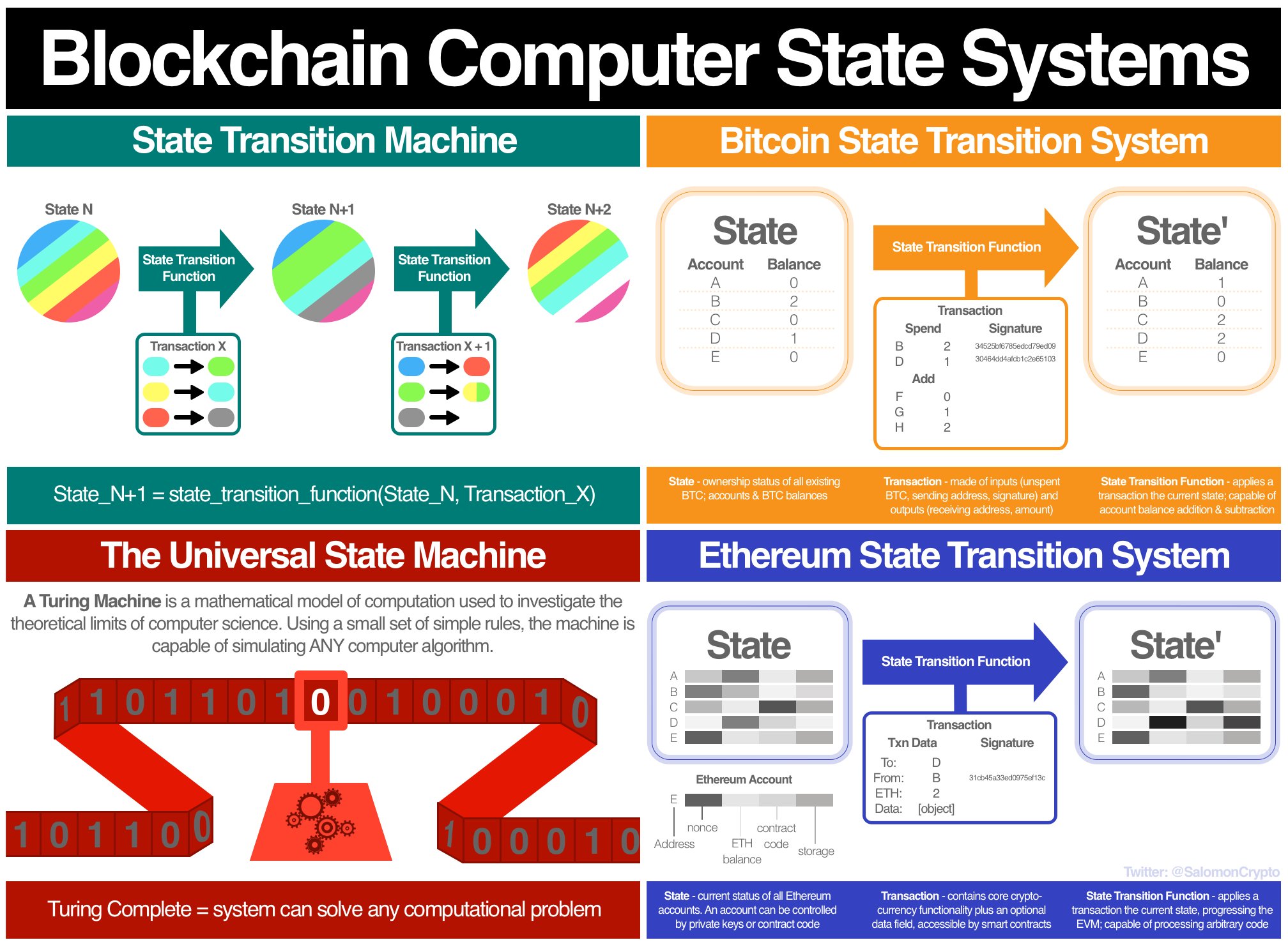
¶ Ethereum State Machine
¶ Background
Ethereum calls us all in different ways.
Some are called by the decentralization, others to become unrealistically wealthy; everyone has their reasons. Personally, I've heard the sweet song of The World Computer and am drawn the future we will build on top of it.
But not all understand The World Computer metaphor.
Crypto is so incredibly fast paced (and is inherently muddied with delusional visions of generational wealth) that it is easy to miss what makes Ethereum so special.
Let's go back to computer science basics.
¶ State Transition Machine
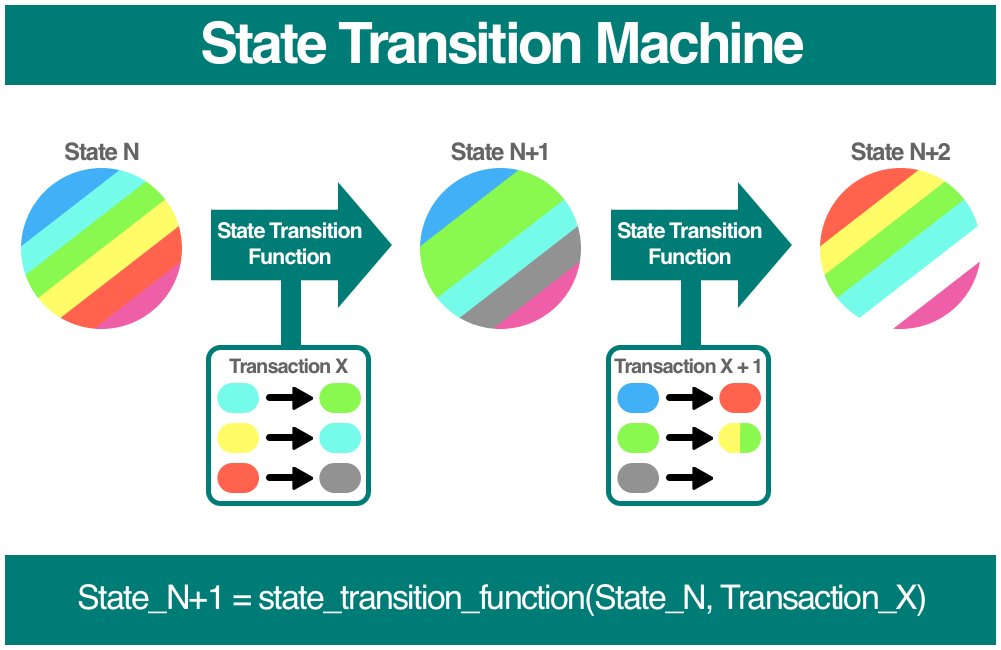
A state machine is a mathematical model of computation with two major components:
- the state, the configuration of the system at a moment in time
- a transaction, the set of instructions to change the state
The machine operates by applying a state transition function:
- INPUTS: current state and the pending transaction
- OUTPUT: the new machine state.
In the example above, the transactions describes which colors to change while the state transition function does the actual changing.
The state transition machine model provides a simple framework for breaking down computation into a step-by-step process.
Now let us apply the concept to Bitcoin.
¶ Bitcoin State Transition System
¶ Computational Model
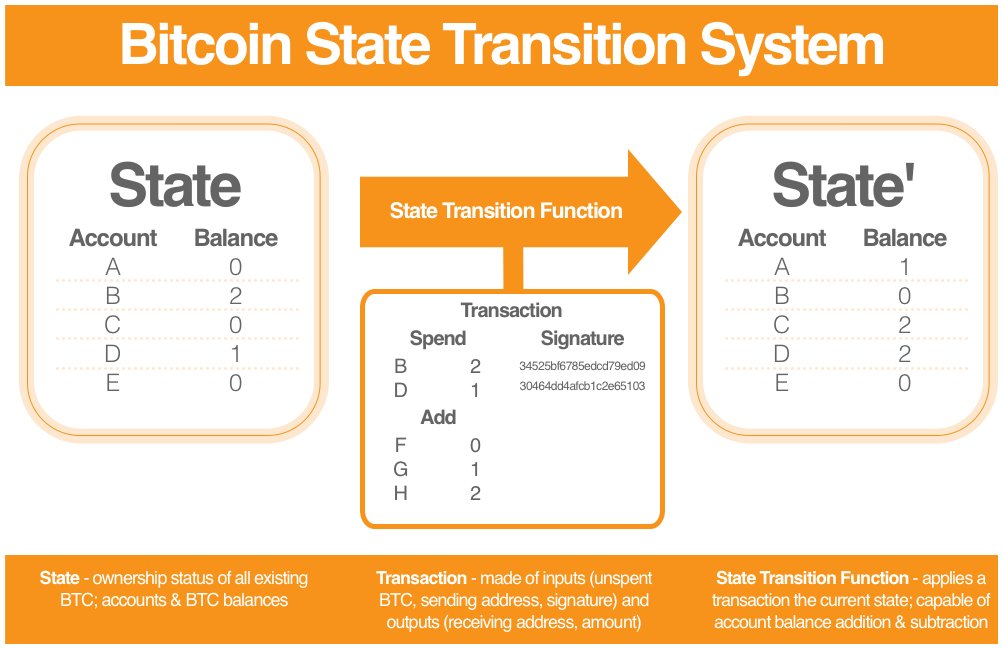
At its core, Bitcoin can be described as a state transition system that functions similarly to a simple banking system.
- State - balance sheet
- Transaction - request to move $X from A to $B
- State Transition Function - reduce $X from A's account, add $X to B's account
While Bitcoin can natively facilitate simple scripts, the language has some critical limitations. In practice, the vast majority of activity is the addition, subtraction and management of account balances.
Put simply, Bitcoin can be thought of as a specialized computer only capable of balance management.
When described as a state transition system, this specialization (limitation) can be seen in the basic and inflexible capabilities of the state transition function.
¶ Trustless Computing
In 2009, Satoshi Nakamoto combined research in public key cryptography with innovations in consensus algorithms to produce Bitcoin.
We've discussed the computational capabilities of Bitcoin - meh.
The impressive part is that it happens on a trustless network.
We'll avoid the temptation to veer deeply into trustlessness in this article. For now, consensus systems substitute a formal barrier of participation with an economic one. The result: a decentralized, transparent & fair platform.
Think about it this way: blockchain computers are a state machine operated by a decentralized network of un-trusted computers.
Bitcoin's state transition function is very basic: balance sheet management. The obvious question...
Can a state transition function do more?
¶ The Universal State Machine
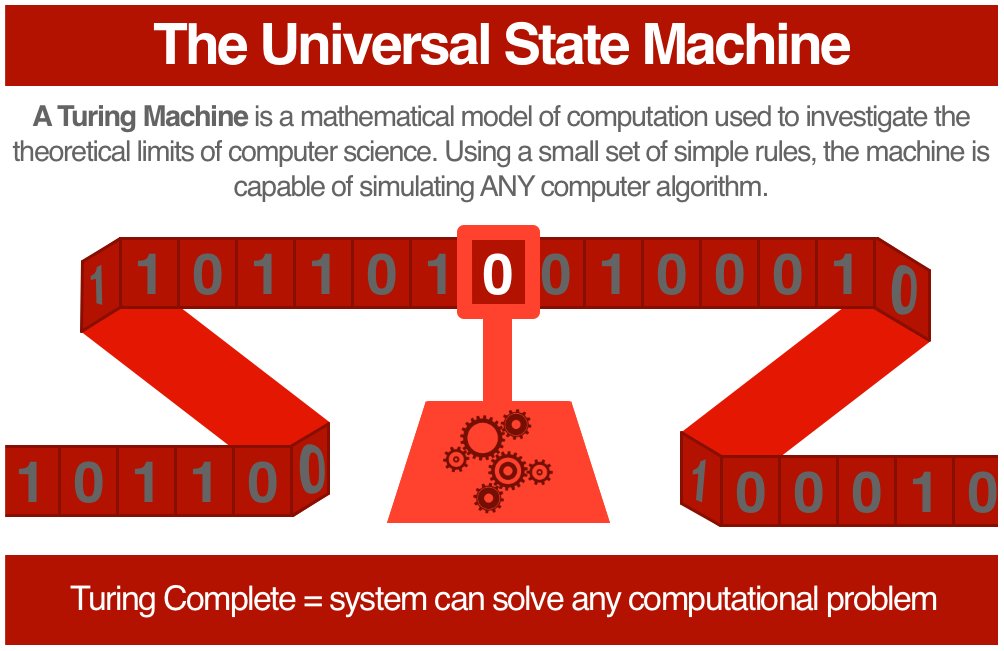
The answer is an emphatic YES! In fact, the right state transition function is capable of generalized computing! The Turing Machine, named from mathematician Alan Turing, is a state machine capable (mathematically proven) of simulating any computer algorithm.
Any computational system can be described via a state machine. A careful analysis of that state machine will check to see if the system can be used to simulate a Turing Machine.
If so, we call the system Turing-complete; it is capable of generalized computation.
Bitcoin is the state machine for a decentralized banking system. Its scope and capabilities are limited by the language of the state transition function.
If Bitcoin is specialized, then Ethereum is generalized.
Solidity, the language of Ethereum, is Turing-complete.
¶ Ethereum State Transition System
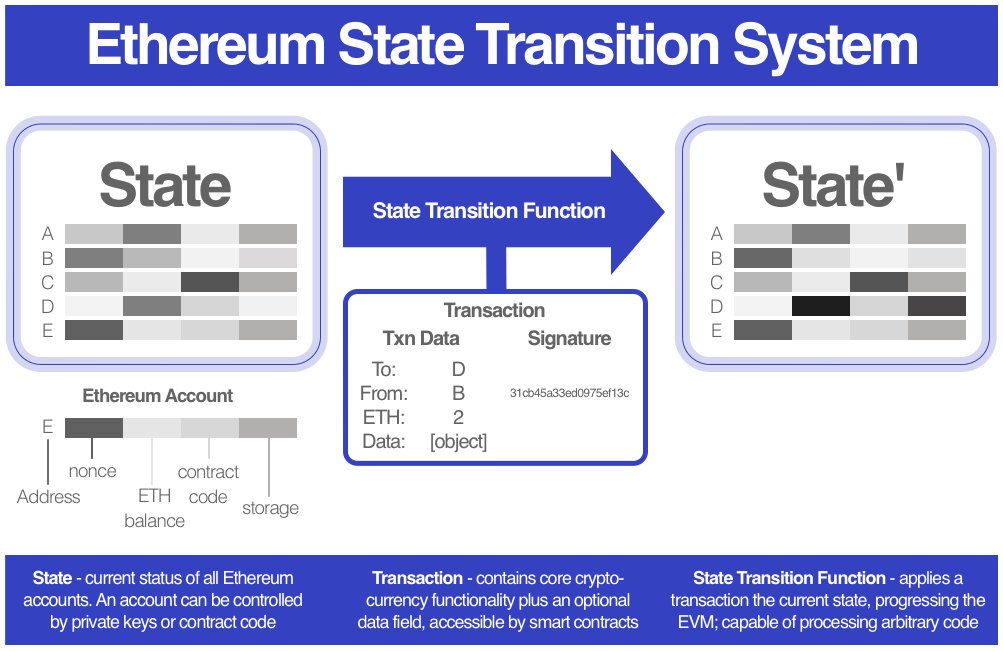
- State - status of all Ethereum accounts
- Transaction - typical cryptocurrency transaction with an optional data field, accessed programmatically by smart contracts
- State Transition Function - the code executed by the EVM
Ethereum is much more complex than Bitcoin, you can see it even in these simplified diagrams.
But take a step back and the picture is more clear: both Ethereum and Bitcoin are blockchain computers; Bitcoin is like a calculator, Ethereum like a Macbook.
In summary, Bitcoin and Ethereum should be understood as the next iteration in computing technology.
¶ The World Computer
First we had personal computing. Then we had cloud computing.
Bitcoin is the first, specialized example of shared computing.
Ethereum is The World Computer.
¶ Resources
Source Material - Twitter Link
Source Material - PDF